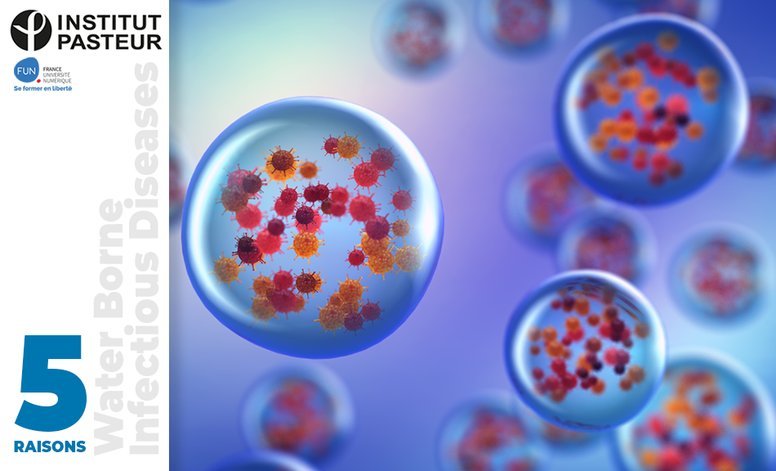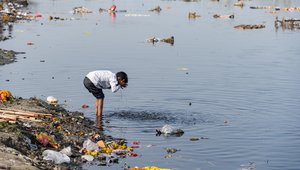News
5 reasons to take the "Water-borne infectious diseases" course
Categories
About the course01/26/2024

Fresh water is essential for humanity, both for nutritional reasons and for hygiene. However, water can be a source of severe infectious diseases, particularly in developing countries, due to microbiological contamination by bacteria, viruses or parasites.
Two good examples of this risk are acute infectious diarrhoea in children, which, according to the WHO, is responsible for 1.4 million deaths a year, and cholera, which has been a pandemic for over 40 years in Africa, South-East Asia and Latin America. Some 2 billion people have no access to drinking water, 2.3 billion to basic sanitation and 3.8 billion to improved toilets. Even in developed countries, the risk of water contamination is not non-existent, due to shortcomings in water purification systems, as some recent epidemics have reminded us.
Here are 5 important reasons to take this course:
Reason 1: To become aware of the potential infectious risks associated with the consumption or use of water.
Reason 2: To understand the human, socio-anthropological, regional and organisational factors contributing to water contamination.
Reason 3: To discover how climate change is exacerbating microbial contamination of water.
Reason 4: To learn about the main bacterial, viral and parasitic diseases that are transmitted by contaminated water.
Reason 5: To realise that reducing freshwater contamination requires a multi-sectoral approach involving the population, local councillors and politicians, and industry.
This course will start on 5 December 2023. It is part of the Institut Pasteur's Digital Diploma in Infectious Diseases (DNM2IP).
To find out more, click here.
Institut Pasteur
Course starts: 5/12/2023
Enrolment deadline: 7/02/2024
 CategoryCertificate
CategoryCertificateRelated posts
Alimentation durable : comment semer les graines du changement ?
Categories
About the coursePlongée dans l'univers des tiers-lieux : découvrir, partager, collaborer
Categories
About the courseComment enclencher une révolution verte ?
Categories
About the course




